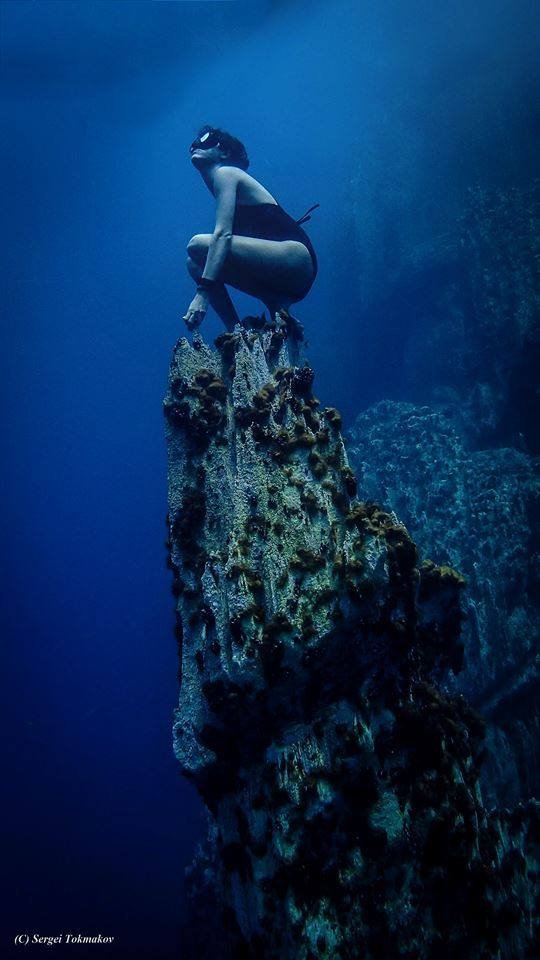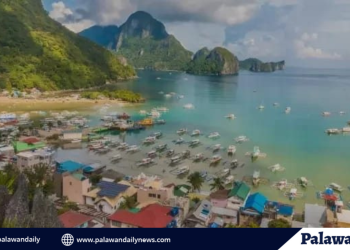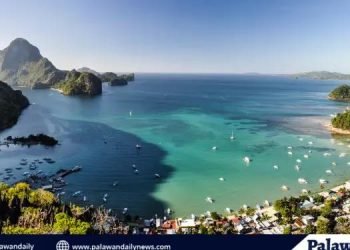 Many local and international freedivers are coming to Coron to go deep in its enchanting waters. “Freediving” is when you swim deep underwater while holding breath, without air tanks. Why? To find out, I’ve talked to an expert freediver and tried it myself. Here is how it all went.
Many local and international freedivers are coming to Coron to go deep in its enchanting waters. “Freediving” is when you swim deep underwater while holding breath, without air tanks. Why? To find out, I’ve talked to an expert freediver and tried it myself. Here is how it all went.
Selma, a Tunisian-French freediving instructor, who fell in love with Coron, explained that freediving is not just a sport. According to her, it’s a healthy, environmentally friendly lifestyle of mindfulness and freedom. “I was a scuba divemaster before but, like many, I got bored of always having to wear the full gear, not having freedom underwater and making so much noise that it would scare fishes! Freediving is so much more natural. It’s a healthy lifestyle that makes you understand how your body and mind work. It makes you focus on the present moment and dig deep into your soul… it could change your life,” said Selma.
But why do people like freediving in Coron specifically? “Because of the amount of shipwrecks and the amazing Barracuda Lake. This lake is magical, mystical. I’ve never seen such a special place so far. Perfect conditions to freedive: no current, no waves, no jellyfish, warm water, surrounded by those big amazing rocks.”
All of that sounded really exciting, so I went in myself. I am a strong swimmer and an underwater model photographer. So, I feel very comfortable underwater (more so than on dry land sometimes) but, nevertheless, I rarely went below 5 meters deep. That’s because I am a lawyer by profession, relying heavily on my brain to make a living. Starving it off oxygen while putting my head under extra pressure never really appealed to me. I also knew that even some of the most professional freedivers (including world record setters) have drowned. It’s classified an “extreme” sport for a reason.
So, before I describe my experience freediving in Coron, I must emphasize that safety should be your paramount concern. Rule #1 is to never freedive alone without another freediver who can go at least as deep as the bottom of wherever you are. That rule, by itself, however, was insufficient to save two Czech freedivers who both drowned during the same freedive session in Coron’s Kayangan Lake last year. So, the most important rule is to never freedive exceeding your personal limits. How do you know what those limits are? Take a freediving course.
After all of the above, I went deep (won’t mention my own depth figures b/c everybody should just do whatever is within their own limits). Imagine praying while floating in total relaxation of body and peace of mind around a huge ancient cathedral while only your guardian angels are there. Deep silence, you are floating free in a sacred space, a unique corner of the planet unknown to most other humans. It’s getting darker but you must remain calm. Karst limestone surrounding your soul while some sunlight above vaguely reminds you of your real world that you just went under. You are getting in touch with the deep inner strengths of your mind and body. I could see why freedivers can get addicted to this feeling. It can potentially be more powerful than in any human-made church.
The importance of the meditative/relaxing aspect of freediving was plain obvious.
“Extreme” sport does not mean there is a thrill of adrenaline rush involved. It’s the exact opposite. The calmer you are, the longer you can stay under water and the more you’ll see. Coron’s lakes offer high visibility, there is a lot to see down there. Follow the safety rules and you are certain to have an unforgettable experience.
About the author & photographer: Sergei Tokmakov is a California lawyer & PNP tourist police photographer. He photographed the Miss Universe candidates in the Philippines and exposed Coron oil spills. Loves the Philippines. Follow him on IG @sergei_tokmakov_photo


















Discussion about this post